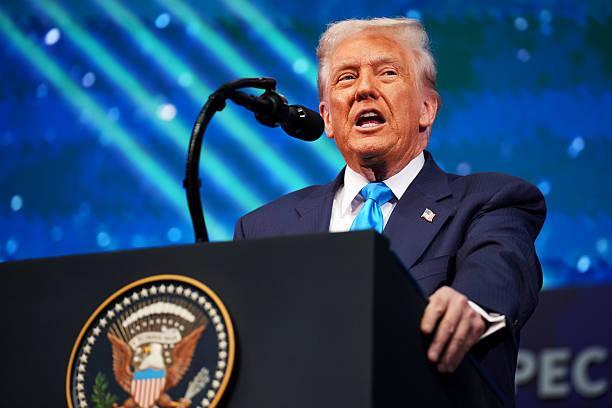
Prez Trump Urges Single Federal AI Law, Warns State Rules Hurt US
The United States has been at the forefront of artificial intelligence (AI) development, with significant investments being made in the sector. However, the lack of a unified federal AI regulation has raised concerns that the country’s leadership in this field may be undermined. Recently, President Donald Trump weighed in on the issue, urging the adoption of a single federal AI law to regulate the industry. He warned that the current state-by-state approach to AI regulation could stifle innovation and allow China to gain ground.
According to President Trump, AI investment is a key driver of US economic strength, but it is being threatened by overregulation. The President has been a strong advocate for easing AI rules, and this has been a key policy focus since he took office earlier this year. The call for a unified federal AI regulation is seen as a move to ensure that the US remains competitive in the global AI landscape.
The current state-by-state approach to AI regulation has created a patchwork of rules and regulations, which can be confusing and burdensome for companies operating in the sector. This can lead to a situation where companies are forced to navigate multiple regulatory frameworks, which can increase costs and hinder innovation. President Trump’s warning that this approach could “kill innovation” and “boost China” is a stark reminder of the potential consequences of inaction.
The US has long been a leader in AI development, with many of the world’s top AI companies, including Google, Facebook, and Amazon, being based in the country. However, China has been rapidly catching up, with significant investments being made in the sector. The Chinese government has also been actively promoting the development of AI, with a focus on areas such as machine learning, natural language processing, and computer vision.
The competition between the US and China in the AI sector is not just about economic dominance; it also has significant implications for national security. AI has the potential to be used in a wide range of military applications, including autonomous weapons, surveillance, and cybersecurity. The country that leads in AI development is likely to have a significant advantage in these areas, which is why the US cannot afford to fall behind.
President Trump’s call for a unified federal AI regulation is seen as a move to ensure that the US remains competitive in the global AI landscape. A single federal AI law would provide clarity and consistency for companies operating in the sector, allowing them to invest and innovate with confidence. It would also help to prevent the kind of fragmentation that can occur when different states have different regulations, which can create confusion and undermine the overall effectiveness of the regulatory framework.
The development of a unified federal AI regulation will require careful consideration of a range of issues, including data protection, algorithmic transparency, and accountability. It will also require close collaboration between government, industry, and academia to ensure that the regulatory framework is effective and efficient.
In conclusion, President Trump’s call for a unified federal AI regulation is a timely reminder of the need for a coherent and consistent approach to AI regulation in the US. The current state-by-state approach is not only confusing and burdensome but also threatens to undermine the US’s leadership in the AI sector. A single federal AI law would provide clarity and consistency for companies operating in the sector, allowing them to invest and innovate with confidence. As the US continues to navigate the complex and rapidly evolving AI landscape, it is essential that it adopts a regulatory framework that is fit for purpose and supports the development of this critical technology.






